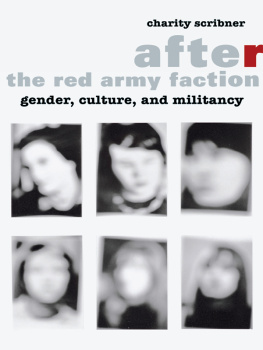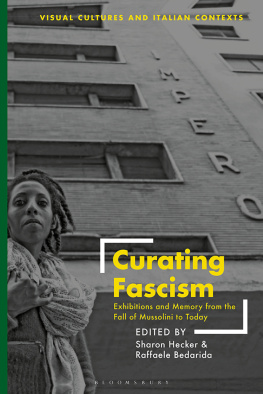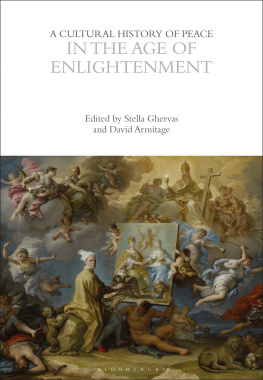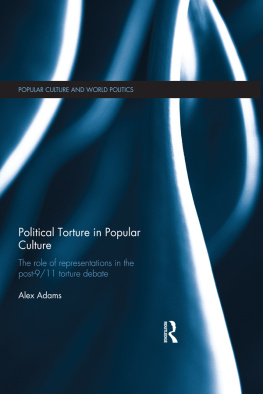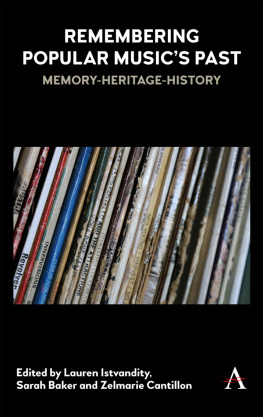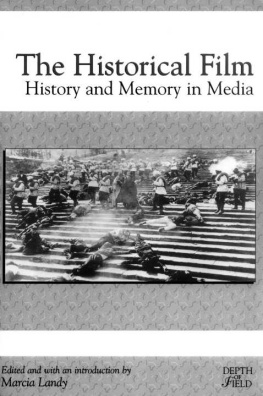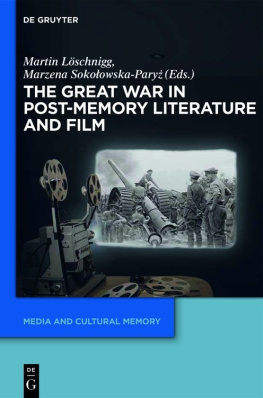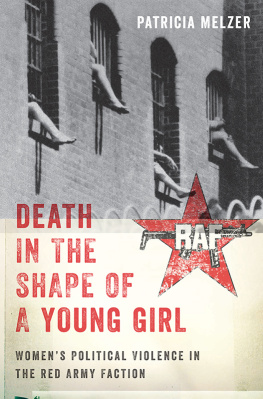Screening the Red Army Faction

CONTENTS
| AA | Auswrtiges Amt, Ministry of Foreign Affairs, West Germany |
| ANC | African National Congress, South Africa |
| APO | Ausserparlamentarische Opposition, Extraparliamentary Opposition |
| BKA | Bundeskriminalamt, Federal Office of Criminal Investigation, West Germany |
| BND | Bundesnachrichtendienst, Ministry of Federal Intelligence, West Germany |
| CDU | Christlich Demokratische Union, Christian Democratic Union, West Germany |
| CIA | Central Intelligence Agency, United States |
| CISNU | Confederation of Iranian Students National Union |
| COINTELPRO | Counter-Intelligence Program, Federal Bureau of Investigation, United States |
| DEFA | Deutsche Film Aktiengesellschaft, East German film production company |
| dffb | Deutsche Film und Fernsehakademie Berlin, German Film and Television Academy of [West-]Berlin |
| DKP | Deutsche Kommunistische Partei, the [West] German Communist Party |
| dpa | Deutsche Presse Agentur, German News Agency |
| GSG 9 | Grenzschutzgruppe 9, Border Protection Group 9, counterterrorism taskforce, West Germany |
| IMF | International Monetary Fund |
| INPOL | Domestic information gathering and sharing system of the police, West Germany |
| J2M | Bewegung 2. Juni, June 2 Movement |
| K1 | Kommune 1, commune in West-Berlin |
| KPD | Kommunistische Partei Deutschlands, Communist Party of Germany [West] |
| NATO | North Atlantic Treaty Organization |
| NEIO | New International Economic Order |
| NLF | National Liberation Front for South Vietnam or Vit Cng |
| NPD | Nationaldemokratische Partei Deutschlands, National Democratic Party of Germany |
| OAAU | Organization of African-American Unity |
| OAU | Organization of the African Unity |
| OPEC | Organization of Petroleum Exporting Countries |
| OSPAAAL | Organization of Solidarity with the Peoples of Asia, Africa and Latin America |
| PFLP | Popular Front for the Liberation of Palestine |
| PLO | Palestinian Liberation Organization |
| RAF | Rote Armee Fraktion, Red Army Faction |
| RZ | Revolutionre Zellen, Revolutionary Cells and its sister group, Rote Zora or the Red Zora |
| SAVAK | Saseman Amniat va Etelaot Keschwar, Organization of Intelligence and National Security |
| Iranian domestic intelligence and secret police (195779) |
| SB | Sozialistisches Bro, Socialist Bureau |
| SDS | Sozialistischer Deutscher Studentenbund, Socialist [West] German Students Union |
| SED | SozialistischeEinheitspartei Deutschlands, Socialist Unity Party, East Germany |
| SHB | Sozialdemokratischer Hochschulbund, Social Democratic University Union |
| SI | Situationist International |
| SPD | Sozialdemokratische Partei Deutschlands, Social Democratic Party of [West] Germany |
| SPK | Sozialistisches Patientenkollektiv, Socialist Patients Collective |
| SS | Schutzstaffel, Nazi Shield Squadron |
| WDR | Westdeutscher Rundfunk, West German Broadcasting |
As the saying goes, it takes a village. I am grateful to everyone who supported this project in a variety of ways and over an expanse of time and space. This study was researched and written between 2006 and 2016. While I was teaching at UC-Berkeley from 2000 to 2006, I took note of the plethora of films released after 2000 that engaged with the Red Army Faction and of Jeremy Varons Bringing the War Home: The Weather Underground, the Red Army Faction and the Revolutionary Violence of the 1960s and 1970s, when it was published in 2004. I sought out a book that engaged with the cultural memory of the Red Army Faction, that is, its frequent appearance and reappearance in various media, including but not limited to literature, art, and film. I remembered how the musician Tom Waits, in an interview, once answered a question about how he came to produce the type of music he did. He said something along the lines of: Because it did not exist. At the time, I found it to be a pretty corny answer. But the lack of availability of a book in English devoted to the study of the Red Army Faction in various media led to this project.
This book has been generously funded by numerous organizations. I am very grateful to these institutions, the individuals at them, and my mentors. Collectively, this support made possible the requisite time for archival research and interviews, as well as for the reading and writing related to the project. The institutions which supported the project include the following: the DAAD, which funded research at the Center for Contemporary German Literature at Washington University in St. Louis (June 2006); the Berlin Program for Advanced German and European Studies at the Free University in Berlin, where I was a postdoctoral fellow from 2006 to 2007; the Fulbright Commission, which awarded me a Junior Research Grant to conduct archival research at the Hamburg Institute for Social Research in 2007; the Minda de Gunzburg Center for European Studies at Harvard University, where I was a visiting scholar in the spring of 2008; the DAAD, which funded participation in a summer seminar at Cornell University on the topic of media that revisits traumatic eras in history (summer 2008); Columbia University, where I was a visiting scholar for two years (200810); the Zentrum fr Zeithistorische Forschung (Center for Contemporary Research) in Potsdam, where I was a summer fellow, and conducted research at the Volker Schlndorff Archiv, Deutsche Filmarchiv, Frankfurt am Main (summer 2009); and a DAAD Faculty Research Grant, which permitted research to be conducted at the archives of the Ausserparlamentarische Opposition (Extraparliamentary Opposition), Free University Berlin (JuneAugust 2011).
Sections of were presented as guest lectures and at conferences and in numerous contexts over the past decade. Versions of the chapter were presented as guest lectures at Harvard University (2011), the Goethe Institut New York (2010), the CUNY-Graduate Center (2010), the University of Jena (2007), the University of Leipzig (2007), Bard College Berlin (2007), and the University of California at Berkeley (2005).
Previous versions of were presented as guest lectures at New York Universitys Deutsches Haus (2012), the CUNY Graduate Center (2012), the University of Antwerp (2010), and Temple University (2010); and as papers at the German Studies Association (2010, 2007); and The Establishment Responds conference, Heidelberg University (2007). I thank Richard Wolin, Nora Alter, Patricia Melzer, Martin Klimke, Joachim Scharloth, and Kathrin Fahlenbrach for their invitations to present my work in these contexts.
Sections of were presented as guest lectures at Temple University (2010) and the Wentworth Institute of Technology (2010), and as papers at the


